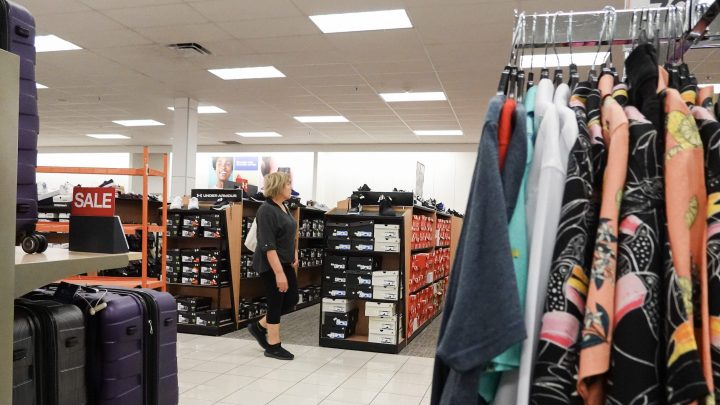
Retail sales figures suggest consumers are pulling back

Ahh, the U.S. consumer. We spend so much ink and airtime figuring out and worrying about this all-important economic actor, who drives two-thirds of gross domestic product. But who — as we learned Wednesday — wasn’t driving much last month.
Retail sales (which by the way, are not adjusted for inflation) were flat in April, after racking up sizeable gains in February and March. Excluding vehicles and gasoline, they were actually down 0.1%.
There have been some warning signs before that the pandemic-pumped high spending levels of the last few years were waning, that inflation and high interest rates were eating away at household balance sheets.
But then, the consumer would surprise us, and go on another spending spree. So maybe now, the long-awaited much-anticipated “consumer slowdown” is upon us?
Month after month, inflation was high, prices were high, and consumers just kept on spending. Until now.
“This is the report I’ve been waiting for, when we do see that pullback,” said retail analyst Claire Tassin at Morning Consult. She said in surveys, consumers report they’re increasingly worn down by inflation.
“Shoppers have continued to make it work, pay higher prices. But that can only go on for so long,” Tassin said.
And retailers? “They’re seeing more pullback from their shoppers — trading down, looking for deals and discounts,” she said.
The grass is a little greener over by Nationwide economist Oren Klachkin: “I don’t think this is the start of a sharp decrease in consumer spending,” he said.
He anticipates only a moderate pullback, in the face of high prices and slowing wage growth, but he, too, sees evidence consumers are getting maxed out.
“The high rate environment is weighing on consumers’ willingness to tap credit lines,” said Klachkin.
Retailers report use of buy-now-pay-later is down. Meanwhile, consumers’ savings from the pandemic have largely been depleted.
“We’re starting to see consumers move to credit cards,” said Dan North at credit insurer Allianz Trade. “And this is happening at really outrageous interest rates of about 21% on average. If you have a lower credit score, it’s even higher.”
For now, said Morning Consult’s Claire Tassin: “People are still spending money, but they seem pretty unhappy.”
As they have been, for a while.
There’s a lot happening in the world. Through it all, Marketplace is here for you.
You rely on Marketplace to break down the world’s events and tell you how it affects you in a fact-based, approachable way. We rely on your financial support to keep making that possible.
Your donation today powers the independent journalism that you rely on. For just $5/month, you can help sustain Marketplace so we can keep reporting on the things that matter to you.











